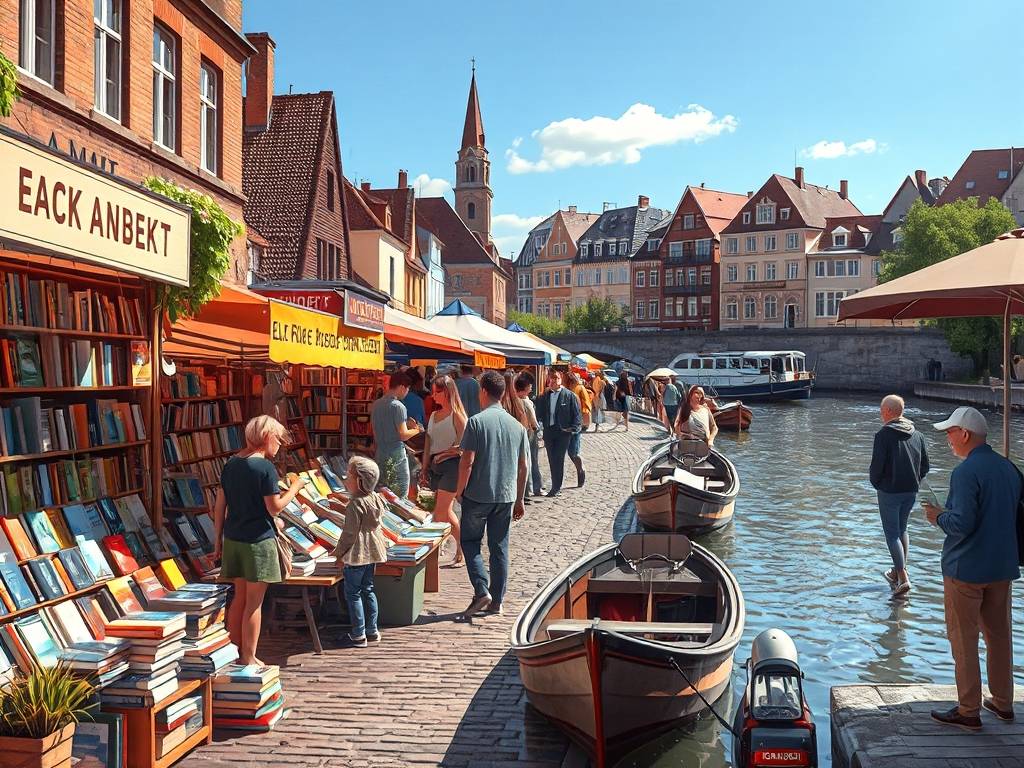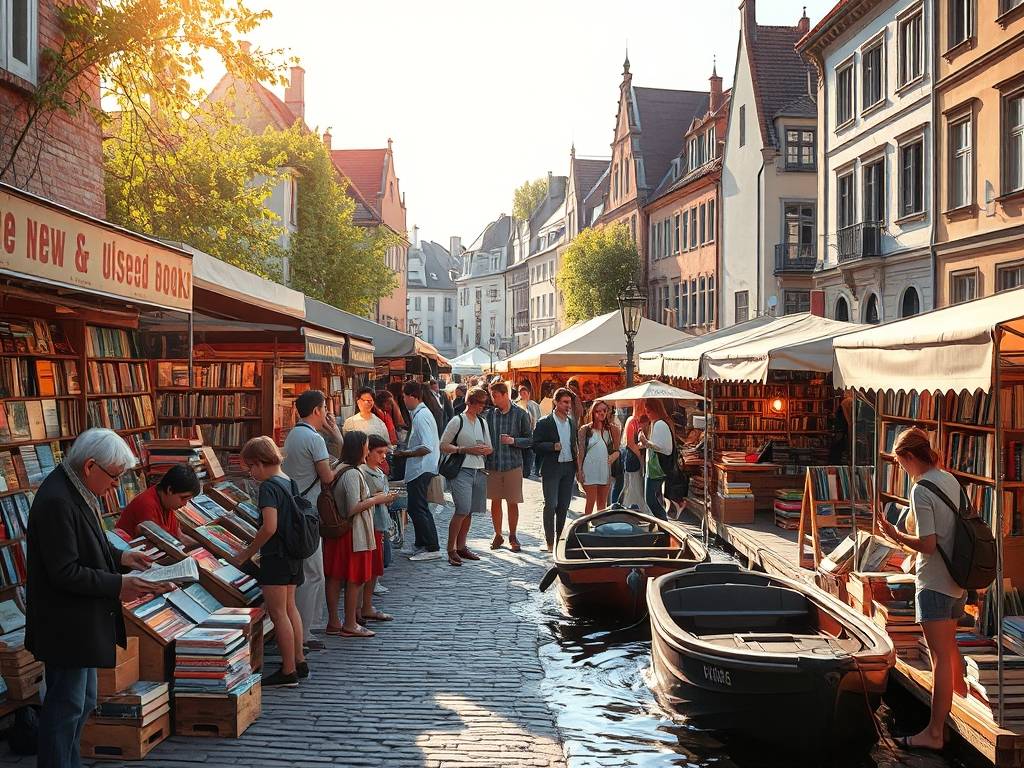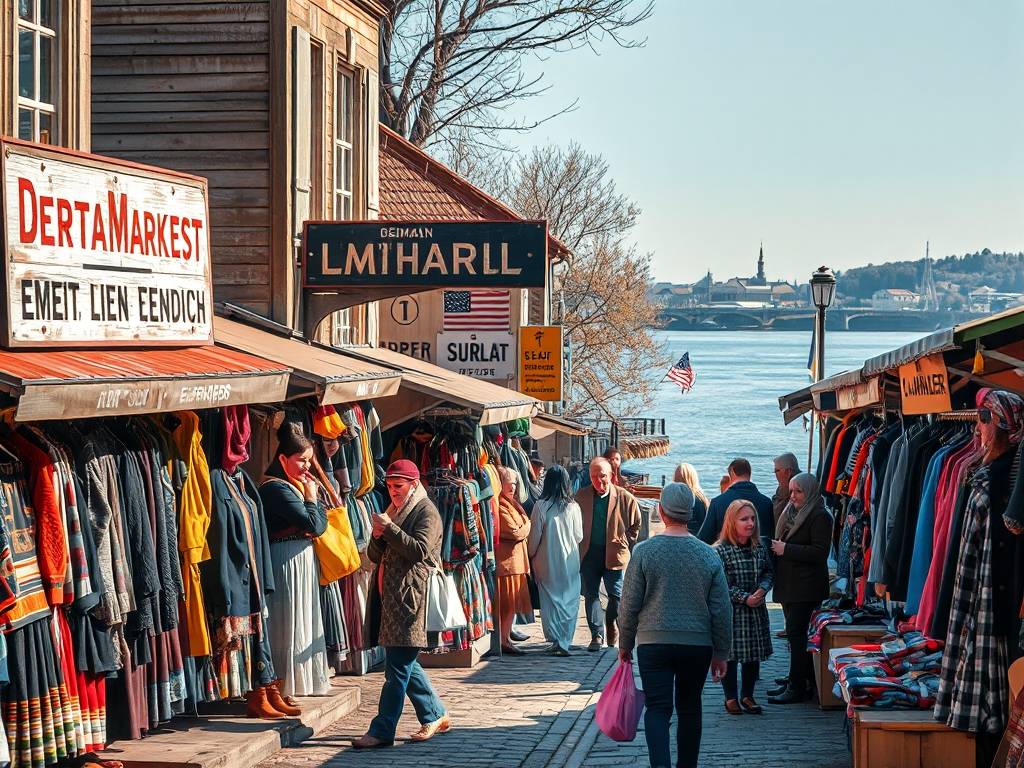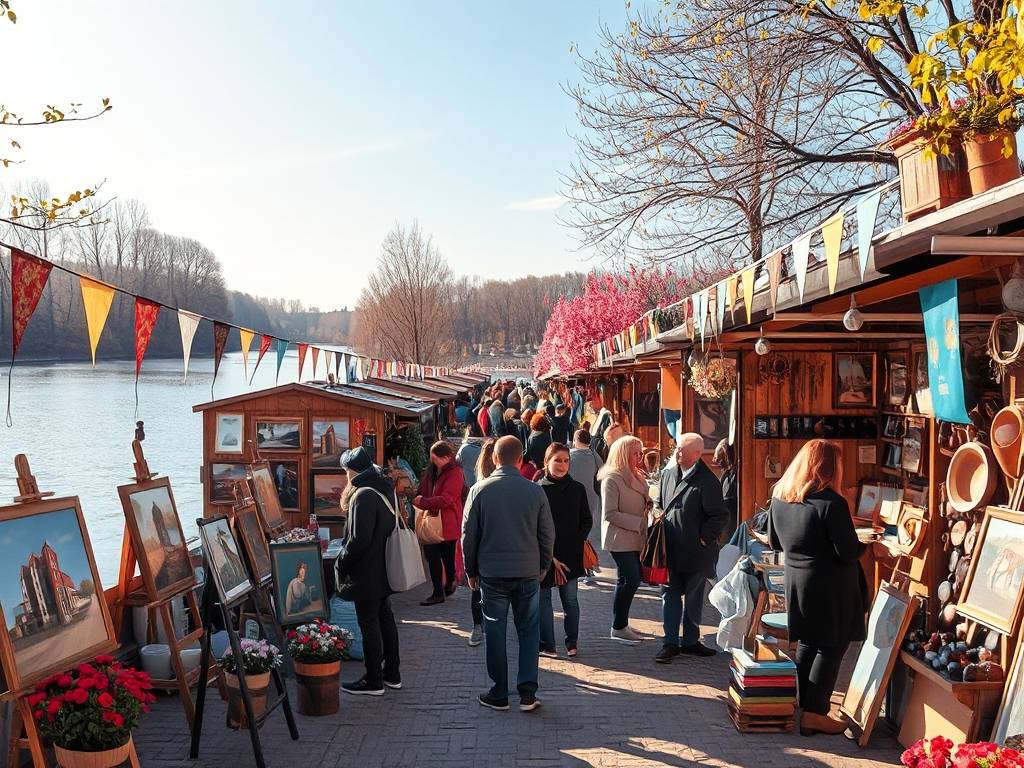Global Travel Information
Elbe River Book Markets: Find New & Used Books
The Timeless Allure of the Elbe: A Bibliophile’s Journey Through Germany’s Floating Book Markets
There is a particular magic that occurs when two great loves converge. For the literary soul and the wandering spirit, few places on earth offer a more potent enchantment than the book markets that grace the banks of the Elbe River. This is not the hushed, climate-controlled reverence of a grand metropolitan library, nor the frantic commercial buzz of a modern book superstore. This is something else entirely—an organic, living tradition where literature meets landscape, where the scent of old paper mingles with the fresh river air, and where every book has a past waiting to be discovered by a new future. The Elbe River book markets, particularly the famed Elbflorenz markets of Dresden and their charming cousins in towns like Meissen and Magdeburg, are more than mere shopping destinations; they are cultural rituals, open-air museums of print, and serene pilgrimages for anyone who believes that a book is not just a story, but an artifact of human connection.
The journey often begins in Dresden, the "Florence on the Elbe," a city whose own narrative is one of breathtaking beauty, profound destruction, and resilient rebirth. Strolling along the Brühlsche Terrasse, the city's magnificent balcony overlooking the river, one is first struck by the panorama of spires and domes. But look closer, and along the promenade, nestled against the stone balustrades, are the familiar rows of dark green or beige stalls. These are the heart of the Dresden book market. Each stall, a small, tidy fortress of literature, is a testament to the specialized passion of its keeper. There are no mass-market bestsellers piled high here; instead, one finds carefully curated collections. A stall might specialize exclusively in fine art folios, their plates showcasing Dresden’s artistic heritage. Another might be a treasure trove of classical music scores, a nod to the city's illustrious musical past. Yet another will be dedicated to the intricate world of cartography, offering antique maps that chart the very river flowing beside you.

The act of browsing here is a slow, tactile pleasure. It requires patience and a keen eye. Your fingers glide over bindings of linen, leather, and paper. You learn to read the subtle clues of a book's history: the slight fading of a spine indicating years spent on a sunlit shelf, the gentle foxing on the page edges like the freckles of age, the inscription on the flyleaf—"To my dearest Clara, Christmas 1928"—that transforms the object from a commodity into a relic of a lived life. This is the primary draw of the used and antiquarian book: the patina of ownership. A new book is a clean slate, full of potential but devoid of memory. An old book from the Elbe markets comes with its own ghosts. Who read this copy of Thomas Mann’s "Buddenbrooks"? Did they see their own family reflected in its pages? Was this guide to Saxon hiking trails carried by someone who stood on this very spot decades ago? This layer of imagined history adds a profound depth to the act of reading.
The river itself is an active participant in the experience. It provides a constant, flowing soundtrack to the hunt for literary gems. The gentle lapping of water against the stone embankments, the distant horn of a paddle steamer, the cries of gulls wheeling overhead—these sounds create a soothing, contemplative atmosphere far removed from the noise of the city streets. The light reflecting off the water dances on the book covers, making the gold leaf on antique bindings shimmer. It is a dynamic environment, changing with the weather and the time of day. A sunny afternoon market is a social affair, filled with chatter and the clinking of coffee cups from nearby cafes. An overcast morning, with a mist rising from the Elbe, lends the scene a more introspective, almost mysterious quality, perfect for delving into tales of German Romanticism or Gothic fiction.
Venturing beyond Dresden, the character of the book markets shifts with the landscape. In Meissen, the porcelain capital of the world, the market stalls huddle in the shadow of the magnificent Albrechtsburg Castle, perched high above the river. Here, the book selection might feel more intimate, more local. Alongside the expected German classics, one finds volumes on regional history, folklore, and, of course, the intricate art of porcelain making. The connection to place is even stronger. Finding a book about the history of Meissen while standing in its old market square, with the Elbe flowing below, feels like uncovering a vital piece of a puzzle. The book and its setting are in dialogue.
Further downstream, in cities like Magdeburg or even as far north as Hamburg where the Elbe meets the sea, the markets take on a different flavor again, reflecting their own industrial and maritime histories. Here, one might stumble upon technical manuals from a bygone industrial age, seafaring novels with weathered covers that hint at salt-sprayed journeys, or travelogues describing distant lands reached via the very river on which the market stands. This geographical variation is key to the Elbe book market experience. It is not a monolithic entity but a string of literary pearls, each with its own unique lustre, threaded along the river’s course.
The social fabric of these markets is as rich as their literary offerings. The booksellers themselves are characters, often scholars and enthusiasts in their own right. They are not mere vendors but custodians of knowledge. Strike up a conversation about a volume of Rilke’s poetry, and you may receive an impromptu lecture on the poet’s time in Saxony. Inquire about a historical text, and the bookseller might pull out a magnifying glass to point out a fascinating detail in an engraving. This human interaction is a cherished antidote to the algorithmic recommendations of online retailers. Here, discovery is guided by curiosity, expertise, and a shared passion.

For the international visitor, the Elbe book markets present a delightful challenge and opportunity. While a working knowledge of German unlocks the vast majority of the treasures, there are always pockets of other languages to be found. Stalls often have sections for English, French, or Russian literature, books that have found their way to the heart of Germany through decades of travel and trade. Furthermore, the visual language of art books, photography collections, or antique maps is universal. A beautiful edition of Dürer’s prints needs no translation. This makes the market accessible to all, encouraging a different kind of looking, one that appreciates the book as an object of art and design.
Ultimately, the enduring appeal of the Elbe River book markets lies in their powerful synthesis of the enduring and the ephemeral. The books represent permanence; they are physical vessels of ideas and stories that have survived the ravages of time, some even weathering the catastrophic firestorms of war that once devastated cities like Dresden. They are tangible links to the past. The river, in contrast, is the embodiment of constant flow and change—a timeless reminder of impermanence. To stand between these two forces, with a newly discovered book in hand, is to experience a moment of perfect equilibrium. It is a celebration of the slow, the meaningful, and the human-scale in a world that often feels too fast and too digital.
Leaving the market, book in bag, one carries away more than just paper and ink. You carry a piece of history, a connection to a previous owner, a memory of a conversation with a knowledgeable bookseller, and the indelible impression of a river that has witnessed centuries of stories flow by. The Elbe’s book markets are not just places to find new and used books; they are where you find the soul of a book, and perhaps, a little more of your own. They remind us that the most rewarding journeys are those where the destination is not a place on a map, but a discovery waiting on a dusty shelf, bathed in the soft, enduring light of the Elbe.
相关文章
- Elbe River Luxury Cruises: Premium Amenities & Service
- Elbe River Day Cruises: Short Trips on the Water
- Elbe River Overnight Cruises: Multi-Day Adventures
- Elbe River Weekend Cruises: Quick Getaways
- Elbe River Holiday Cruises: Christmas, Easter & More
- Elbe River Themed Cruises: Music, Art & Literature Trips
- Elbe River Eco-Cruises: Sustainable Travel Choices
- Elbe River Kayak Tours: Paddle Through Scenic Areas
- Elbe River Canoe Trips: Explore the River at Your Own Pace
- Elbe River Stand-Up Paddleboarding Tours: Try a New Activity
发表评论
评论列表
- 这篇文章还没有收到评论,赶紧来抢沙发吧~


